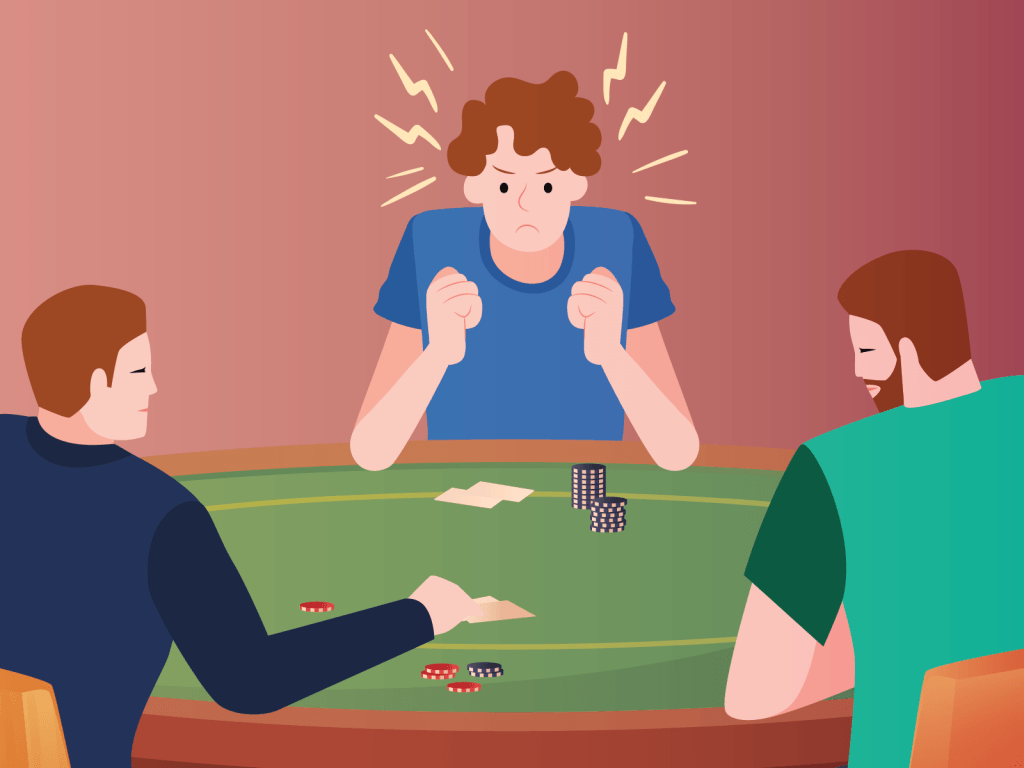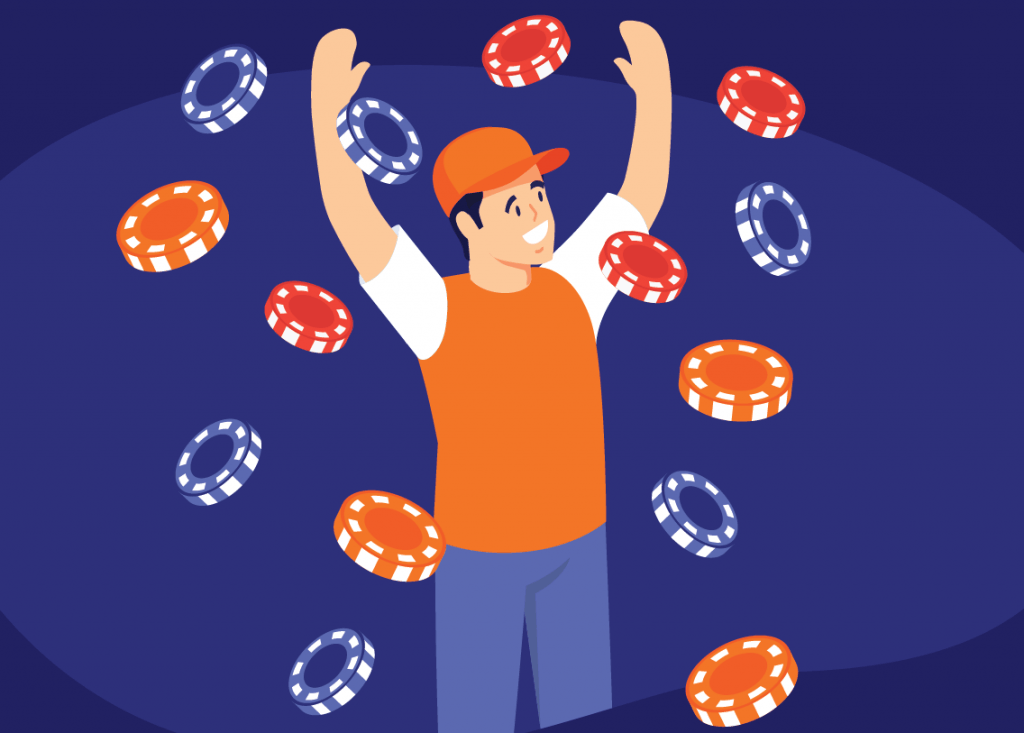Strategies to Prevent Tilt in Poker: Keeping Your Emotions in Check

What Is Tilt and Why Does It Happen?
Tilt in poker describes those moments when emotions start to override rational thinking. Instead of basing your moves on logic and analysis, you let frustration, anger, or disappointment influence your decisions. Tilt can quickly cloud your judgment, often leading to a spiral of poor choices and escalating losses.
This emotional trap sets up a dangerous cycle: a misstep caused by tilt usually brings about a negative outcome, which then intensifies those emotions, making it even harder to recover your game. Without active strategies to manage it, tilt can completely derail your poker performance.
Remember: Every Player Experiences Tilt
No matter your skill level, tilt is a universal experience at the poker table. Even the world’s top professionals-those you watch climbing to dizzying wins-get tilted sometimes. The difference between seasoned players and casual ones isn’t whether they feel frustration, but how they handle it.
What separates successful players from the rest is their focus on process over short-term results. If you obsess over immediate outcomes-such as being eliminated after a solid hand-you are more likely to become emotional when luck runs against you. In fact, the better you play, the more frustrating it can feel when things go wrong, as it often seems unfair.
Take, for example, the classic “bad beat” scenario. If you go all-in pre-flop with pocket aces against pocket twos, your opponent still has about an 18% chance of winning. Losing in these situations is inevitable sometimes, even if the odds were overwhelmingly in your favor. Reminding yourself of the game’s inherent variance helps reduce feelings of injustice.
While you can’t eliminate tilt entirely, your ability to recognize and manage it is what ultimately keeps your poker decisions sharp.
Identifying Your Personal Tilt Triggers
Just as every poker player’s style is unique, so too are their tilt triggers. Being aware of what causes you to lose composure is a major step toward prevention.
Some of the most frequent tilt triggers include:
- Suffering repeated bad beats
- Losing big pots to coolers (unavoidable strong hands)
- Negative interactions with other players (table banter)
- Unfavorable playing environment or atmosphere
- Making costly mistakes
- Playing when fatigued or distracted
Every player is sensitive to different stressors. You may be more prone to frustration than others, but understanding your specific triggers gives you tools to manage your reactions and maintain focus.
How to Consciously Manage Emotions During the Game
Extended streaks of bad luck, especially after a series of coolers or bad beats, can push even experienced players off their A-game. This is a natural response; you’re not alone in feeling upset when things go against you through no fault of your own.

The most important skill is to notice when your emotions begin to influence your thinking. Focus on making optimal decisions, disregarding the uncontrollable results of individual hands. Remember, the random element of variance means bad beats will occur again and again-accepting this is essential.
When you notice yourself making loose calls, chasing losses, or slipping into an “it doesn’t matter what I do anymore” mind frame, pause. Get up from the table, take a short walk, have a snack, or meditate-anything to reset your mindset. If the frustration persists, it’s often better to end your session and return refreshed, especially in cash games.
Stop Letting Self-Criticism Fuel Tilt
Everyone makes errors-there is no such thing as perfect play. Mistakes are an unavoidable part of poker, and how you handle them can determine your success.
Thinking about your mistakes during active play can compound tilt. If you misplay a hand and lose a pot, it's crucial to let the outcome go and concentrate on the next hand. Ruminating on previous errors may cause you to make even more poor choices.
Don’t fall into the trap of thinking, “I already messed up-nothing matters now.” Each hand is a fresh opportunity, and even with a small stack, you can turn the session around with optimal play.
A practical habit is to jot down any hands you believe you played poorly. Save detailed analysis for after the session-that way, you stay mentally engaged in the current game rather than being distracted by regrets.
The Importance of Physical Preparation and Well-Being
Poker may be a mental battleground, but your physical state significantly impacts your performance. Playing while tired, hungry, or preoccupied with outside problems makes you much more vulnerable to tilting.
Prioritize Rest and Nutrition
A well-rested mind is more resilient to the swings of poker. Proper sleep, regular meals, and a balanced diet help stabilize your mood and sustain focus during long sessions. Skipping sleep or meals can make even minor setbacks feel overwhelming, so don’t underestimate the effect of basic self-care.
Plan to eat before a lengthy poker session, and avoid going too long without a break or sustenance. Small adjustments-like opting for nutritious food over salty or sugary snacks-bring tangible benefits to your game strength.
Mental Preparation is Part of the Process
Your mental state outside the poker room matters. Unaddressed personal issues or daily stress can follow you to the table and cloud your decisions.
Allocate a few minutes before play as a routine warm-up. Review recent hands, study an article, or talk strategy with a friend to shift your mindset into poker mode. This ritual helps you recognize when you might not be in the right headspace to play-and it’s okay to skip a session if you’re feeling off.
Recognizing and Avoiding Winner’s Tilt
Not all tilt comes from negative emotions-sometimes, running hot can be just as dangerous. “Winner’s tilt” happens when a string of successes leads to overconfidence and reckless play.

When fortune is on your side, it’s easy to believe you have an edge over everyone at the table. However, this attitude often leads to playing too loosely, chasing marginal draws, or betting aggressively without solid justification.
Just as with negative tilt, stay vigilant for changes in your playstyle during a winning streak. Stick to your strategy, and don’t let temporary good fortune cloud your discipline.
Accept Tilt as Part of the Poker Journey
Tilt is as much a part of poker as bluffing or bad beats. Instead of judging yourself for getting emotional, focus on what you can control: your reactions and recovery. Every player deals with tilt-it’s how you manage it that impacts your results most.
While no one can play tilt-free all the time, minimizing its impact is both realistic and vital. By embracing variance, remaining self-aware, and taking steps to reset when emotions get the best of you, you can keep your game on track and give yourself the best chance at long-term success.













